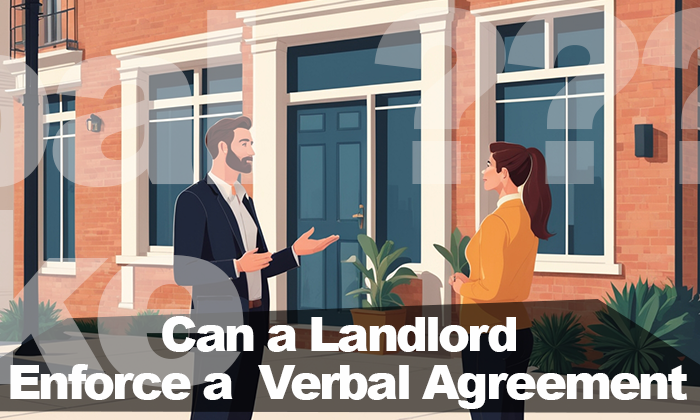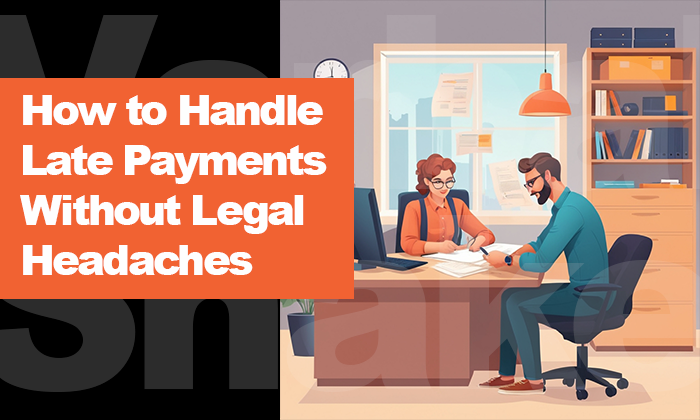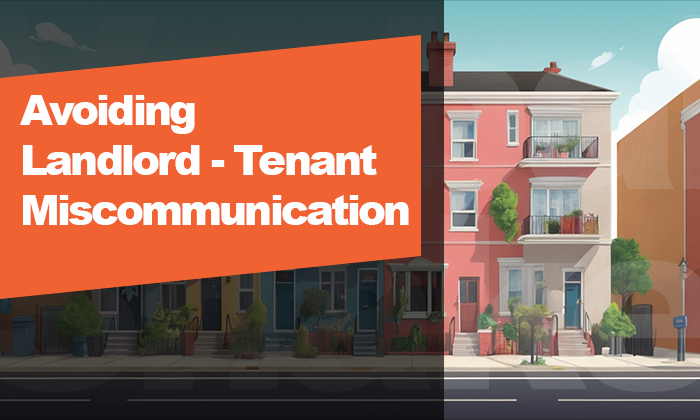Can a Landlord Enforce a Verbal Agreement? 5 Costly Myths Debunked

Many landlords believe that a handshake agreement is just as good as a written one—but is that really true?
Verbal agreements feel convenient, but when it comes to rental properties, they’re difficult to enforce and often lead to disputes.
In this article, we’ll debunk common myths about verbal rental agreements, explain when they might be legally binding, and show landlords how to protect themselves with clear documentation.
Do Verbal Agreements Hold Up in Court for Landlords?
The short answer? Not easily.
Many landlords assume that if a tenant verbally agrees to something—whether it’s paying a late fee, mowing the lawn, or staying for an extra month—they’re legally required to follow through.
But here’s the reality:
- Lease agreements override verbal promises. If the lease doesn’t mention an agreement, tenants can argue they never committed to it.
- Verbal agreements are hard to prove. Even if a tenant agreed to something, if it’s not in writing, it’s their word against yours.
- Courts favor written documentation. Most judges will prioritize a signed lease over an undocumented verbal conversation.
Let’s look at real-world situations where landlords run into trouble with verbal agreements.
What Happens If a Tenant Breaks a Verbal Agreement?
Verbal agreements often backfire because there’s no way to prove what was agreed upon. Here are three common disputes landlords face when relying on verbal agreements.
1. The Late Fee Dispute
The Verbal Agreement: A tenant is late on rent. The landlord verbally agrees to waive the late fee—just this once.
The Problem: The next month, the tenant is late again and refuses to pay the late fee, saying:
"You waived it last time, I thought that was the new arrangement!"
Without written proof, the landlord has no leverage to enforce the late fee.
2. The Yard Maintenance Agreement That Never Happened
The Verbal Agreement: A tenant promises to mow the lawn regularly in exchange for a small rent discount.
The Problem: A month later, the yard is overgrown.
The tenant says:"I never agreed to that."
Now, the landlord is stuck with a property that’s not being maintained—and no way to prove the agreement existed.
3. The Month-to-Month Extension That Wasn’t
The Verbal Agreement: A tenant verbally agrees to extend their lease on a month-to-month basis instead of moving out.
The Problem: A few weeks later, the tenant moves out unexpectedly.
When the landlord asks why, they reply: "I never committed to staying. I was just considering it."
Now, the landlord is left with an unexpected vacancy and lost rental income.
How to Prevent Tenant Verbal Agreement Disputes
1. Stick to the Lease
If an agreement isn’t in the lease, it’s not guaranteed.
Your lease agreement should cover:
- Rent payment terms (including late fees)
- Maintenance responsibilities (who mows the lawn, who handles minor repairs)
- Lease renewal terms (to avoid unexpected move-outs)
If something important isn’t in the lease, it should be added as an official lease addendum—not left to verbal agreements.
2. Get Agreements in Writing
Even if you don’t update the lease, you should still get written confirmation of any agreement.
Example of a Text Confirmation:
"Just to confirm, rent will be paid by the 10th this month, with a late fee applying after that. Let me know if you have any questions."
If the tenant responds with “Got it” or “Understood,” you now have proof if they try to dispute it later.
3. Use Tools Like Verbal Shake
We created Verbal Shake because too many landlords were getting burned by handshake deals that turned into disputes.
With Verbal Shake, landlords can:
- Quickly document agreements in plain language.
- Get instant tenant confirmation with a simple digital acknowledgment.
- Store agreements securely to prevent “I never agreed to that” disputes.
Instead of chasing down texts, emails, or outdated leases, landlords can document rental agreements in real time—without dealing with legal headaches.
FAQ: Can a Landlord Enforce a Verbal Agreement?
Q: Do verbal agreements hold up in court for landlords?
A: Not easily. While some verbal agreements can be legally binding, they’re difficult to enforce without proof. Courts typically prioritize written leases over verbal commitments.
Q: What happens if a tenant breaks a verbal agreement?
A: Without written documentation, it becomes a matter of one party’s word against the other. This makes it hard to prove in court and could result in financial loss for the landlord.
Q: How can landlords prevent verbal lease disputes?
A: Document everything in writing. Even a simple email, text message, or a tool like Verbal Shake can provide legal protection and avoid misunderstandings.
The Bottom Line: If It’s Not in Writing, It’s Not Guaranteed
- Verbal agreements are risky.
- If it’s not documented, it can be denied, forgotten, or disputed.
- Landlords who rely on verbal agreements often end up losing money.
- If it’s important, put it in the lease.
- If an agreement is made outside the lease, confirm it in writing.
- For a fast and reliable way to document agreements, try Verbal Shake.
Don’t let handshake agreements lead to lost money. Protect yourself with clear, written documentation.
Want to Avoid Costly Verbal Agreement Disputes?
Verbal Shake is launching soon! Get early access and make sure your agreements are always clear and enforceable.



